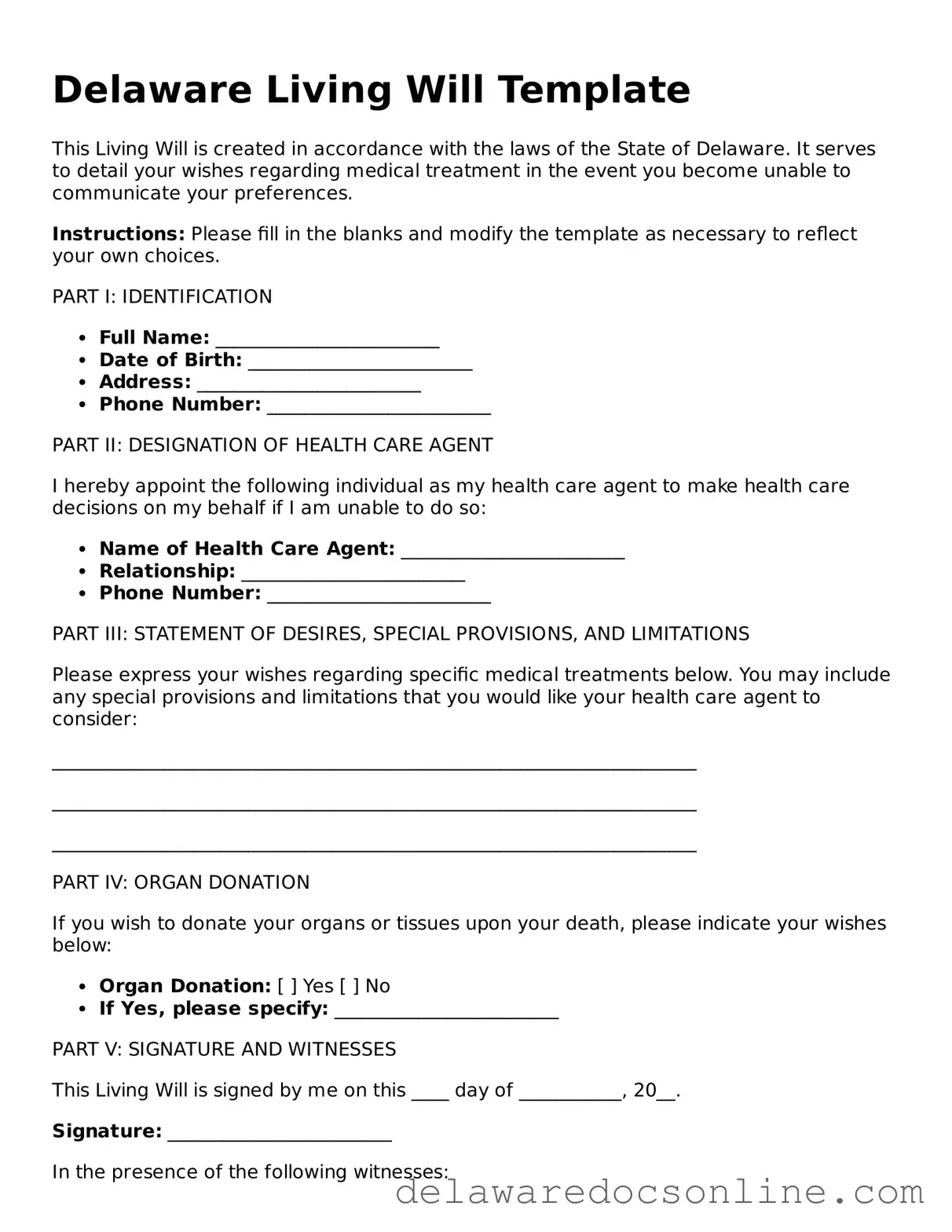Attorney-Verified Living Will Document for Delaware
A Delaware Living Will form is a legal document that allows individuals to outline their preferences for medical treatment in the event they become unable to communicate their wishes. This form plays a crucial role in ensuring that a person's healthcare decisions are respected and followed. By completing a Living Will, individuals can maintain control over their medical care during critical times.
Make Your Living Will Now

Attorney-Verified Living Will Document for Delaware
Make Your Living Will Now

Make Your Living Will Now
or
⇓ PDF File
Need speed? Complete the form now
Edit, save, download — finish Living Will online with ease.